 Petzlover
PetzloverMcNab is originated from United States but Tasy is originated from Kyrgyzstan. McNab may grow 8 cm / 3 inches shorter than Tasy. Both McNab and Tasy are having almost same weight. McNab may live 3 years more than Tasy. McNab may have less litter size than Tasy. Both McNab and Tasy requires Low Maintenance.
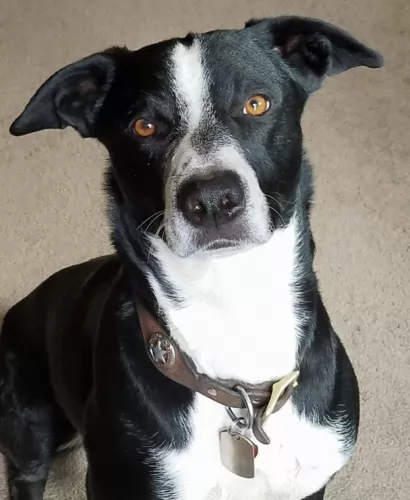 The attractive McNab dog is also known as the McNab Shepherd or McNab Collie. This very lively dog originated in the Mendocino region of Northern California, being specifically bred to withstand tough weather conditions and rough terrain.
The attractive McNab dog is also known as the McNab Shepherd or McNab Collie. This very lively dog originated in the Mendocino region of Northern California, being specifically bred to withstand tough weather conditions and rough terrain.
The dog is becoming popular outside of California now. A Scottish rancher with the surname McNab left Scotland and arrived in California in the 19th century. He crossed Scottish Border Collies with Shepherd dogs and the ranchers in California started using these dogs for herding livestock.
Today they are still being used as herding dogs in California and other countries. The dog isn’t recognized by the American Kennel Club. It was in 2014 that a group of McNab Shepherd breeders established the McNab Shepherd Registry so as to work towards the advancement of the McNab Shepherd.
Call them Tasy or Tazys these sighthound dogs from Kazakhstan have always been used for hunting. This Turkish dog is thought to be one of the oldest dog breeds in the world.
There aren’t many left in the world and the Kazakhstan government is putting steps into action to prevent the dog from becoming extinct.
These dogs are not recognized by the Federation Cynologique Internationale. Their ancestry is unclear, but the dog shares DNA with quite a few similar-looking breeds.
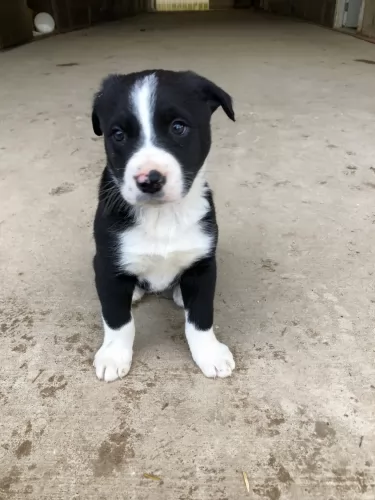 The McNab Dog is a medium-sized working dog. The appearance of this dog varies quite a bit. For instance you may come across a dog with erect ears or floppy ears or a long tail or one that is naturally bobbed.
The McNab Dog is a medium-sized working dog. The appearance of this dog varies quite a bit. For instance you may come across a dog with erect ears or floppy ears or a long tail or one that is naturally bobbed.
When it comes to size, you will find that between the males and females they stand at roughly 40 – 64cm and weigh anything from 14 – 30kg.
Most of these McNabs are black or red with white feet, white tipped tails and white markings around the face. The coat is weather resistant and fairly short and dense. You also get tri-colored McNabs. Eyes are usually a brown or copper color though you might find some with bluish eyes as well.
These are such intelligent dogs so with training and socialization you’ll find he is able to learn easily and quickly. He is a self assured dog, so he will respond well to an owner who is firm and fair, patient, kind and consistent.
He is best suited to life in the country as he needs lots of place to run around. If you don’t live on a farm, take the dog for long walks every day as he requires lots of exercise and mental stimulation. He is a loving family member too, getting along well with kids in the home as well as other pets. He is also a good guard- and watch dog, taking his job as protector of his human family very seriously.
The slender Tasy is a fairly large dog standing at between 55 to 72 centimeters in height and weighing in the region of 20 – 35g.
The dog has a short, silky coat and can be in a number of colors – fawn, grey, red.The tail is long and thin, the legs long and slender, the muzzle long and thin and the floppy ears are often folded back.
Independent and Intelligent, the Tasy will be easy to train. This is a gentle dog, not looking to get into trouble with other dogs. He gets on well with children and loves human companionship. They are known for their playfulness.
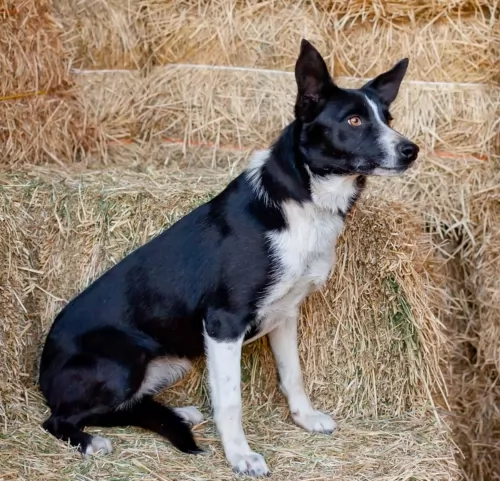 The McNab makes a splendid pet and is known to be even-tempered, being friendly and tolerant with his entire human family.
The McNab makes a splendid pet and is known to be even-tempered, being friendly and tolerant with his entire human family.
He gets on well with children in the home as well as other pets. He has always been a hard working pet and doubles up as being an excellent guard dog too. Those who have had the McNab as a pet say that you couldn’t get a more excellent family canine friend.
The Tasy is such a beautiful dog and capable of making a splendid family pet and companion.
It is sad that these dog's numbers have dropped so much so that there is concern for its existence.
We hope that the Tasy's breeding programs meet with success and that this slender, attractive dog, such an ancient breed, will take his place firmly as man’s best friend.
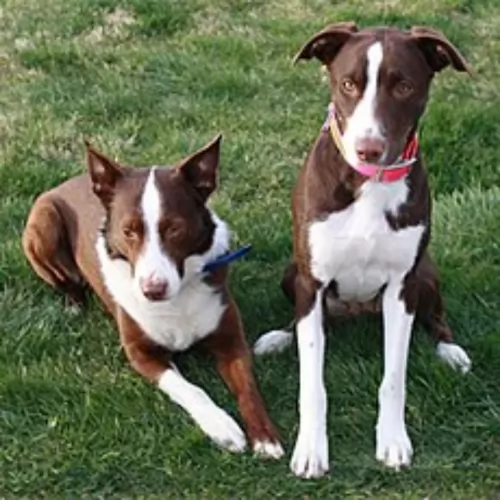 This dog doesn’t really have genetic health issues, but they can suffer with hip dysplasia, a problem that many dogs battle with, whether small or large, young or old.
This dog doesn’t really have genetic health issues, but they can suffer with hip dysplasia, a problem that many dogs battle with, whether small or large, young or old.
They can also suffer with epilepsy and an eye disease such as entropion where the lid of the eye is turned inwards. Check its ears and teeth regularly for infections and keep up to date with his vaccinations.
The McNab is a health dog breed so you aren't likely to face any of these common dog health issues.
Your Tasy is such a beautiful dog, you don’t want to see him getting sick, and yet there are some illnesses and conditions he can succumb to -
Many large breeds, even slender ones, can be prone to hip dysplasia. This is where the joint’s ball and socket don't fit together properly. For your canine friend it can mean pain and arthritis, and you may find your pet making a huge effort to stand once he is lying down.
Any dog can become overweight, but it is more noticeable in slender-build dogs like the Tasy. Obesity pus unnatural pressure on the joints and it is also linked to other health problems. Every dog needs good food and good exercise.
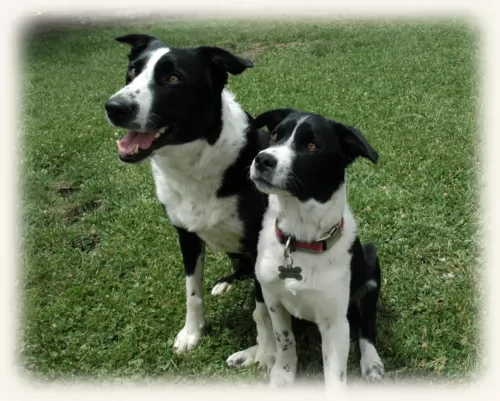 You can feed your McNab dog commercial dry kibble, but then you want to be sure its the best quality one. Buying inferior foods means that you’re getting a whole lot of ingredients in the food that are bad – sugar, salt, preservatives, fillers, colorants etc. Rather go for the best brands that will ensure that your dog is getting all the vitamins and minerals he needs.
You can feed your McNab dog commercial dry kibble, but then you want to be sure its the best quality one. Buying inferior foods means that you’re getting a whole lot of ingredients in the food that are bad – sugar, salt, preservatives, fillers, colorants etc. Rather go for the best brands that will ensure that your dog is getting all the vitamins and minerals he needs.
Homemade food is also important and foods such as boiled chicken, brown rice and pasta as well as cooked or raw vegetables chopped up and added to his dry kibble can make for a delicious, wholesome treat. It will be to his benefit if you can every now and then give him some raw meat as well. Make sure to see that he has a constant supply of fresh, cool water.
McNab Shepherds are very active dogs and they are going to require quite a bit of physical exercise as well as mental stimulation. They are dogs who have been used to herding livestock and he loves this busy life. It is why he wouldn’t be happy living in the city but is better suited to farm life or in a home with a large garden. Long walks and hikes will suit him as well as swimming and joining in every game there is.
The McNab is considered to be a low maintenance dog and grooming the short thick coat will be required twice a week. Always check around the eyes and ears as well as inside the mouth for problems and infections.
The Tasy is a playful, energetic dog and will need to be exercised on a regular basis. He loves a good run and is the kind of dog that won’t do well in a small city property. He is far better suited to life in the country where he can run freely.
The Tazy is looked upon as being low maintenance. It’s always a good idea to get into the habit of brushing your dog’s coat once or twice a week to not only remove loose hairs but to have some bonding time with your pet.
It’s also time to run your hands over the lean body ad to make sure there aren’t any unusual lumps. Look inside his ears and make sure there is no sign of redness to indicate an infection. Remember, if you don’t like to do the grooming part for your pet, professional groomers can do all these things for you as well as trim his nails and clean his teeth.
The Tasy is a fairly tall, lean, energetic dog, so if you opt to feed him one of the commercially manufactred dog foods there are, choose one that suits the age, size and energy levels of your pet.
Your dog can get sick if you feed him inferior dog food so read the packaging carefully and make sure its a good brand with vitamins and minerals instead of useless, toxic fillers.
Try to include some simple,home-made food devoid of spices or other exotic things that can give him a stomach ache. Boiled chicken, brown rice or pasta and spinach, sweet potatoes and carrots are a super healthy choice. Chop it up and feed it to your pet twice a week or so as a tasty treat.